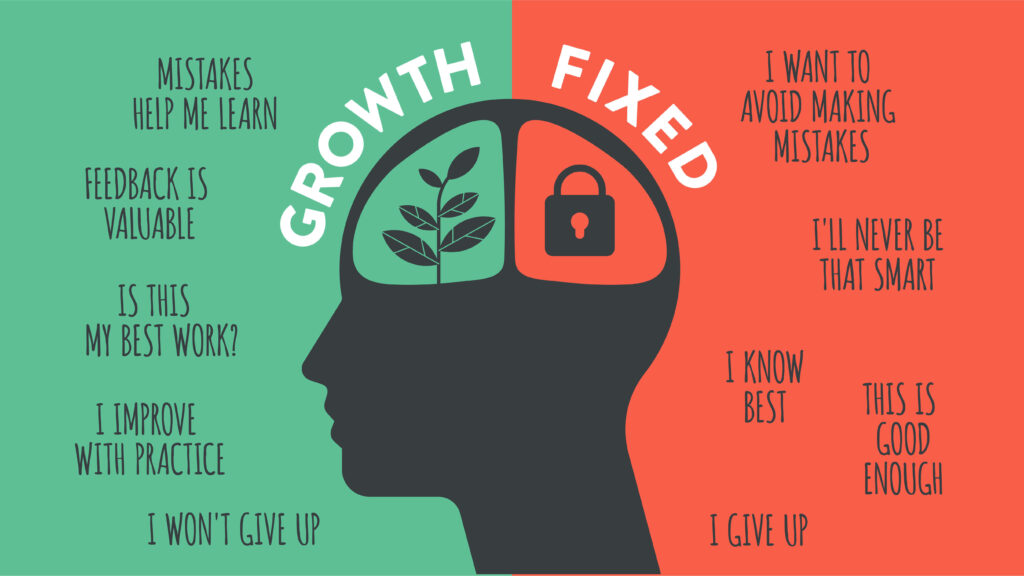If you’re tackling a legal design project, the smart money’s on a growth mindset for a competitive edge
Legal teams increasingly rely on legal design to find fresh and intuitive solutions to legal issues. And there’s plenty of evidence that engaging with soft skills, such as a growth mindset, is one of the critical factors for success. So let’s take a closer look at growth mindset and legal design: how do they work together, and why does it matter?
What are soft skills?
First, we need to understand soft skills. They’re interpersonal and communication skills that help you interact with others. Soft skills can include:
- effective communication
- problem solving
- active listening
- empathy
- conflict resolution
- teamwork
- collaboration
- time management
- adaptability.
In legal circles, soft skills are increasingly recognised as an effective way to cement professional relationships, collaborate, and navigate complex issues. And when it comes to adaptability, growth mindset is a biggie. Maybe the biggest, even.
What is a growth mindset?
When you have a growth mindset, it’s much like a “glass half-full” attitude. But it’s also more than that. When faced with a challenge or setback, the growth mindset kicks in: a self-belief in being able to improve the situation.
That things aren’t set in stone.
That you are not your failure.
The growth mindset tells you there’s a way around the roadblock. It may be a lengthy detour, but you’ll eventually find your way through.
It’s the opposite of a fixed mindset, which focuses on what’s gone wrong or isn’t working. A fixed mindset is grounded in believing things can’t change or improve.

How do growth mindset and legal design interact?
Traditional legal solutions often make the law the focus. In other words, law-centred. No surprises there. But on the other hand, legal design aims to apply design principles to legal issues to find client-centred solutions. In other words, to find approaches that focus on a client’s needs while putting the law second. For example:
- A website policy that’s written in plain language and designed for easy navigation.
- A physical workspace that brings together international legal teams for collaboration and implementation.
- A contract that non-English speakers can easily understand.
Mindset is a critical part of this process. A growth mindset allows a legal design team to consider every perspective: the lawyer, the client, the user, and anyone else who needs to benefit from the solution.
So, a legal designer’s growth mindset means they will often approach any issue by:
- asking basic questions
- seeking feedback
- striving to understand the users.
It also means brainstorming sessions may see some wild ideas bandied about, but this is often where the magic happens. Where we find true innovation.
It’s also where failure is embraced, which can be disconcerting for any lawyer who’s new to legal design, but also highly effective.
Why do I need to accept failure as part of a growth mindset?
Accepting failure is necessary for a growth mindset because if brainstorming is the magic, failure is the fairy-dust-cherry-on-top. Failure gives insight into how to improve the existing idea or why the improvements are necessary. And often, a failure will get you to the solution much faster than any success.
How does a growth mindset work in business?
Elizabeth Day’s podcast, How to Fail, is a wonderful and diverse survey of how interviewees used failure to find success.
In one episode, Day interviewed billionaire Nigel Morris, a founder of US banking giant, Capital One. Morris studied psychology at university, which informed many of his business strategies. His insights on failure and growth mindset are fascinating and relevant to legal design. They also give a billion good reasons why a growth mindset can lead to incredible financial success.
Day introduced Morris with this cracking quote:
Morris was once asked what business had taught him. He replied: “Go long on ambition and curiosity. Try and fail fast. Everything is written in pencil, and growth is life.”
It’s a brilliant description of a growth mindset in action. Failing fast is tremendously important because it demonstrates a fearlessness that can only exist with a growth mindset.
Morris also said:
… one of the things that we did … was to treat consumer finance like a giant experimental laboratory …
And then the growth mindset slam-dunk:
So much about business is test and learn. So much about business is you don’t know unless you try. So much about business is making a step forward and see what the perspective is and how it’s different from the step that you took before.
I can’t think of a better illustration of how a growth mindset can dramatically impact an organisation’s financial and business success.
(And also, I think this bloke needs to write a book. Seriously.)
So if a growth mindset is a crucial business strategy for a self-made billionaire, surely it’s good enough for the rest of us, right? And with compelling examples of how to make loads of dosh, improve your service offerings and even find a way to scoot up the ladder of workplace success, there are plenty of reasons to harness the wisdom.
In tricky economic times when business uncertainty is the norm, maybe you’re looking for ways to differentiate your services from your competitors. Adopting a growth mindset may be the answer.
How do you adopt a growth mindset, especially in law?
Getting into the growth mindset zone need not be complicated, but it may require a bit of practice, especially if you’re used to operating in a fixed mindset. And no judgment if this is the case. Fixed mindsets help lawyers provide necessary legal services, such as understanding, interpreting and applying laws, doing things correctly and critically assessing facts. So there’s a place for the fixed mindset. But there’s also a place for opening up to a growth mindset.
I recommend starting small with these suggestions:
- When there’s a failure or setback, analyse it and find ways to improve or learn.
- Form teams to do the work. Multidisciplinary teams are best.
- Encourage open communication and collaboration with your team.
- Don’t be scared of crazy ideas. They’re a starting point, not the finish line.
- Tap into the wisdom of business leaders who model a growth mindset.
One last thing
Soft skills are increasingly important in law because we’re entering an era that embraces design thinking. A critical component of successful legal design is a growth mindset, and here is where we’ll see innovation leading to success. But no need to take my word for it. Over to you, Nigel Morris:
… one of the critical attributes of success in business is having an insatiable curiosity. And that means about challenging everything, about railing against conventional wisdom. It’s about using data and empirics to undress ideas that have been around forever.
Yep, golden wisdom.
So question everything, embrace ambiguity and fail and fail again. Then you’ll know you’ve achieved a growth mindset.
Over to you
What do you think about the growth mindset? How does it help you in legal practice? Or how will it help you if you’ve decided to adopt a different approach? Leave a comment – I’d love to learn more about your progress.




